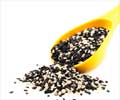Discover the incredible health benefits of avocado seed tea – from boosting heart health, and controlling blood sugar, to its antioxidant power.
- Avocado seed tea offers a rich source of phytochemicals and soluble fiber beneficial for heart health and controlling cholesterol
- The tea is packed with antioxidants and anti-inflammatory compounds, which help in preventing chronic diseases and managing blood sugar
- Before diving into the trend, it's essential to know the correct preparation methods and potential safety precautions associated with avocado seed tea consumption
Avocado Seed Tea Improves Heart Health
Avocado seed tea has been used for decades to boost health and well-being in Africa, and Central and South America due to its high concentration of medicinal substances known as phytochemicals. While avocado seeds are extremely nutrient-dense, they also include a high concentration of soluble fiber, which protects your heart. “We know that avocado seeds contain healthy fatty acids, carbs, and a small amount of protein,” explains Sonali Ruder, OD, an emergency room doctor, trained chef and the founder of The Foodie Physician. “They’re especially high in soluble fiber, which has several potential health benefits, including aiding in digestion and lowering cholesterol. Fiber helps keep everything running smoothly in our intestinal tract, stabilizes blood sugar, and prevents heart disease.”Carmelita Lombera, RDN, a registered dietitian based in Sacramento, California, agrees. "Avocado seed tea may improve heart health by lowering blood pressure and LDL or “bad” cholesterol. The polyphenols in the seed help limit HMG-CoA reductase, an enzyme responsible for the production of cholesterol. Many statin drugs act on this same enzyme, but they can also have side effects.” Those statin side effects can include muscle pain, liver damage and a spike in your blood sugar levels (1✔ ✔Trusted Source
A Comprehensive Examination of Drug Regulatory Issues, Including the Problem of Spurious Drugs
Go to source).
Avocados are also high in potassium, and "the seed is an excellent source as well," according to Lombera. Increasing your consumption of dietary potassium (also known as potassium citrate) reduces your systolic (top number) and diastolic (bottom number) blood pressure (2✔ ✔Trusted Source
Effect of increased potassium intake on cardiovascular risk factors and disease: systematic review and meta-analyses
Go to source). It works by relaxing blood vessels and aiding in the removal of excess salt from the body.
Health Benefits of Avocado
Avocado seeds can do more than simply protect your heart. It turns out that grocery shopping offers total-body health benefits as well.“These seeds contain several vitamins and minerals," Dr. Ruder says. "They also have bioactives, which are plant-based compounds that have many potential health benefits such as reducing inflammation and fighting chronic diseases like cancer. They even have anti-bacterial and antifungal properties.”
Avocado Seeds Are a Rich Source of Antioxidants for Immunity
Avocado seeds are high in antioxidants. They contain up to 70% of an avocado's antioxidants (3✔ ✔Trusted SourceAvocado: the Holistic Source as a Natural Doctor!
Go to source).
“Antioxidants are like protective superheroes for our cells, helping to prevent damage from free radicals that contribute to aging and chronic disease,” Dr. Ruder explains. “These antioxidants include vitamin C and vitamin E, which are especially important for boosting our immunity.”
Avocado Seed Reduces Chronic Inflammation
Avocado seeds maintain health at the cellular level, preventing chronic inflammation, which can lower energy and mood and hasten aging. Avocado seeds are so healthy that their anti-inflammatory chemicals may one day be used in pharmaceutical research.“I would recommend avocado seed tea to anyone who is experiencing chronic inflammation from conditions such as obesity, heart disease, liver disease, diabetes, cancer, digestive issues, or hormonal imbalances,” Lombera says. “One compound inside avocado seeds, chlorogenic acid, captures free radicals" that play a role in triggering inflammation. And researchers know that inflammation causes weight gain, and excess weight causes more inflammation.
Avocado Seeds Balance Blood Sugar Levels
Flavonoids, which are found in avocado seed tea, have been demonstrated to help manage energy-sapping blood sugar fluctuations and dips. One study indicated that these flavonoids limit sugar absorption while increasing insulin production in diabetics (4✔ ✔Trusted SourceAntidiabetic activity of avocado seeds (Persea americana Mill.) in diabetic rats via activation of PI3K/AKT signaling pathway
Go to source).
The chlorogenic acid in avocado seeds also helps to keep blood sugar stable. "It's been shown to increase the GLP-1 hormone, which increases blood insulin levels and slows down gastric emptying, making you feel fuller," Lombera explains. The effects of GLP-1 on blood sugar regulation and weight loss are well recognized. GLP-1 antagonists are a class of medications that imitate the hormone's activities by boosting insulin production after eating.
Safe Ways to Brew Avocado Tea
Avocado seed tea, whether freshly prepared or purchased, has the same health advantages. The distinction: handmade brews cost pennies per cup but take a little longer to prepare. This is because avocado seeds must dry for at least three days before being used in tea. According to Lombera, fresh avocado seeds are strong in phytochemicals, which might be toxic in high doses.“If you don’t have time to dry and boil the seeds, buying them is an easier option.” You can buy pre-made avocado seed teabags or powdered tea. “I recommend NutriCargo’s Avocado Pit Powder,” says Lombera. “I suggest this brand because all of their products undergo weekly testing for microbial pathogens and heavy metals. Since many companies sell tea made from avocado leaves, make sure the tea or powder you buy is derived from the seed/pit.”
Safety Precautions of Avocado Seed Tea
“Avocado seed tea has powerful nutritional properties, but there are concerns that some of the plant compounds in avocado seed could potentially be harmful,” explains Dr. Ruder. “Safety tests are in the early stages. So, if you’re going to try avocado seed tea, I wouldn’t overdo it and recommend sticking to one cup per day.” Lombera concurs, noting that “drinking one cup has been shown to provide benefits. Since avocado seeds are so high in nutrients, you don’t need to drink any more than that.”While most people prefer avocado seed tea, there are a few people who should avoid it. Of course, avocado seed tea should be avoided by anyone who has an avocado sensitivity or allergy, according to Dr. Ruder. “Also, avocado contains small to moderate amounts of vitamin K, which may interact with blood-thinning medications like Warfarin. So, if you’re on a blood thinner, consult with your doctor first," Dr. Ruder adds.
References:
- A Comprehensive Examination of Drug Regulatory Issues, Including the Problem of Spurious Drugs - (https://pharmaceuticals.gov.in/sites/default/files/MashelkarCommitteeReport.pdf)
- Effect of increased potassium intake on cardiovascular risk factors and disease: systematic review and meta-analyses - (https://pubmed.ncbi.nlm.nih.gov/23558164/)
- Avocado: the Holistic Source as a Natural Doctor! - (https://wjpr.net/abstract_show/3312)
- Antidiabetic activity of avocado seeds (Persea americana Mill.) in diabetic rats via activation of PI3K/AKT signaling pathway - (https://pubmed.ncbi.nlm.nih.gov/35190649/)
















